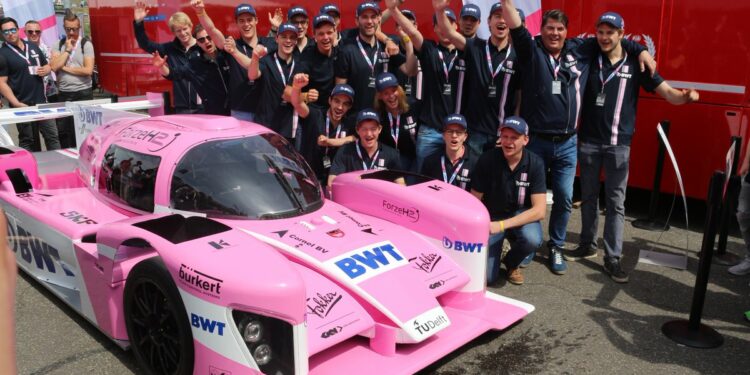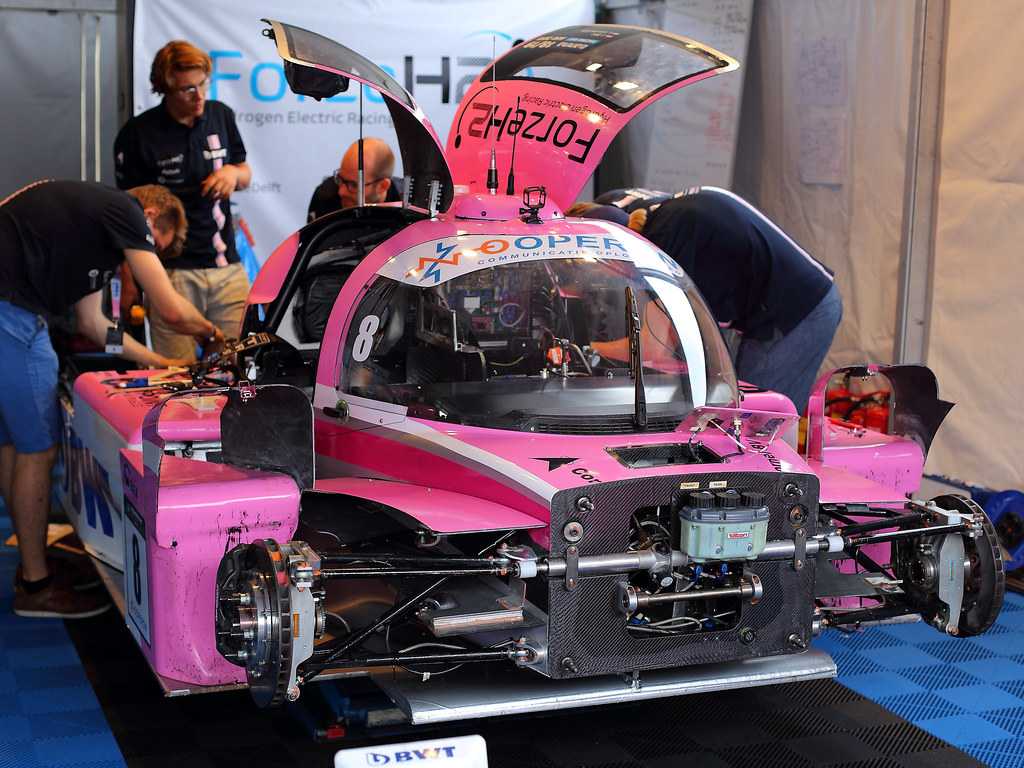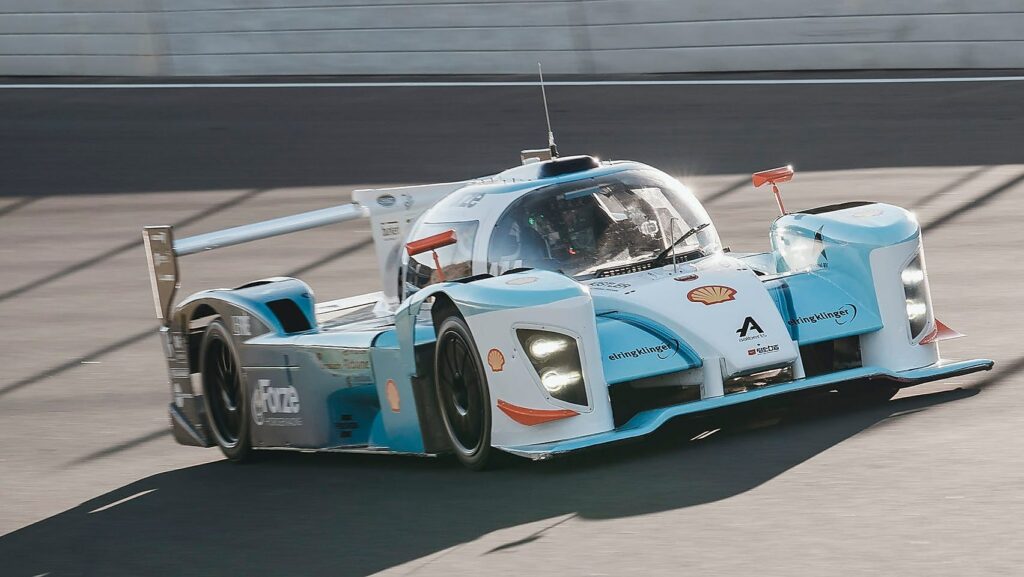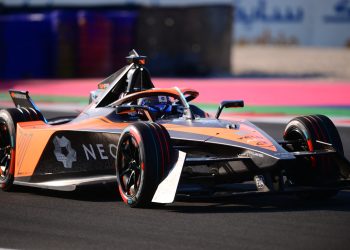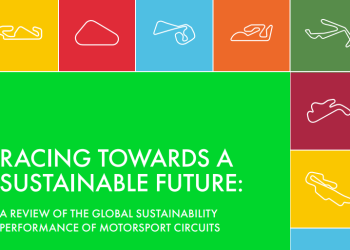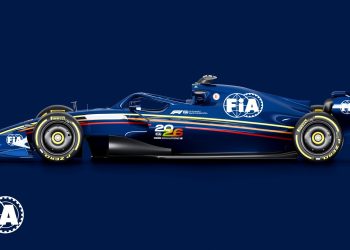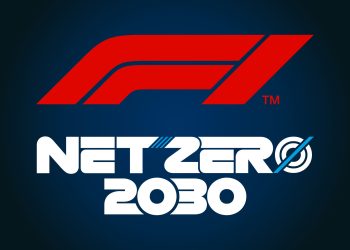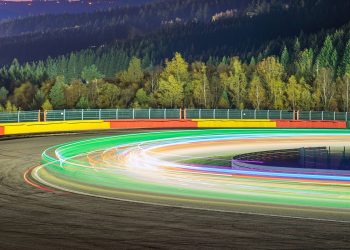Forze Hydrogen Racing, a team made up of students from the Technical University of Delft, in the Netherlands, are convinced that hydrogen represents the fuel of the future in motorsports, and they dream of competing in the Gran Turismo (GT) series to face prestigious manufacturers such as Porsche and Lamborghini.
This was announced by Ricarda Warnat, Operations Manager of the staff, during the virtual forum “Hydrogen Generation”, organized by Enapter, a well-known company that focuses on the development of modular hydrogen.
The directive offered details of the work carried out in the team with the construction of vehicles of impressive technological capacity and sustainability. Forze Hydrogen Racing was founded in 2007 and has been at the forefront of innovation ever since, as well as participating in numerous events.
Related content: JBXE: Kevin Hansen to receive Jenson Button’s steering wheel for the Ocean X Prix
“Our team was formed because our founder found out about the Formula Zero competition, and this is where our name comes from. Formula Zero is Forze,” Warnat revealed.
“When we were participating in Formula Zero, we managed to build the Forze I. And personally, I think it’s quite impressive that we managed to build a fuel cell vehicle in those days because hydrogen was not really being explored back then,” she explained.
Expansion and growth
Warnat pointed out that with the great punch that the launch of Forze I had, the team decided to move to a growth stage and participate in category tournaments. “That was the starting point. After this we decided that we wanted to be a bit bigger so we started competing in Formula Student UK races and achieved some pretty impressive results. However, we still wanted to go further, so we built the Forze VI,” detailed.
Developed in the summer of 2013, the Forze VI was equipped with a lightweight body and diffuser to improve aerodynamics and set a lap record at the famous Nürburgring Nordschleife in Germany. Nevertheless, Forze Hydrogen Racing was not satisfied with those results.
“We wanted to grow even more, so we started building LMP-based hydrogen racing cars. We started with the Forze VII, which is the car we raced in the supercar challenge in the Gamma Racing days in 2019,” the Operations Manager highlighted.
“At this event, we got second place in sports class and to me, I think it’s pretty impressive that the student team came in second against real gasoline cars,” added.
The objective of the project
The Forze Hydrogen Racing team’s vision goes beyond building technology-rich vehicles and pursuing racing titles. It is a look at the damage that fossil fuels are doing to the planet and contribute to reverse this situation.
“You may be wondering, why are we doing this? It is because we truly believe that hydrogen is the fuel of the future and that we need an alternative to fossil fuels. Obviously, the world is warming, the climate is changing, and if we continue like this, future generations will not have a world to live in,” Warnat warned.
“Renewables are an amazing idea, but the sun doesn’t shine and the wind doesn’t always blow. We believe that with hydrogen we can store a large part of the green energy that is produced in the form of hydrogen,” she said.
She assured that the mission of Forze Hydrogen Racing is “to show the world that hydrogen is the fuel of the future, and that is our most promising energy storage”.
Future plans
Forze Hydrogen Racing does not rest despite the achievements they have made and they continue to work with their eyes ahead with the construction of their newest vehicle: the Forze VIII. However, the team already has the IX in sketch, which they hope to have ready in 2022.
“The Forze VIII will have 240 kilowatts of fuel cell power and has a dual fuel cell system. It will be with all-wheel drive and we hope to be able to participate in the type of races of the GT class, Porsche, Lamborghinis and the like,”said Warnat about the franchise plans.
The team is made up of 60 Delft students, many of whom drop out for a year. They have designed, built and raced the fastest hydrogen electric race cars in the world.
Key alliances
Forze Hydrogen Racing has not only limited itself to working with its exalted group of students, but in 2021 it achieved a partnership with one of the giants of world motorsport such as Hyundai.
Hyundai will collaborate with Forze to continue pushing the boundaries of fuel cell mobility. To do this, the students in the team will have the knowledge, experience and support of the engineers at the Hyundai Motor Europe Technical Center in Rüsselsheim, Germany.
By 2022, the team will implement a comprehensive strategy to complete the construction of Forze IX. Once completed, it is expected to be the world’s fastest fuel cell electric racing car and a breakthrough in sustainable racing, with speeds of up to 300 kilometers per hour.
Written by I Jhonattan González



